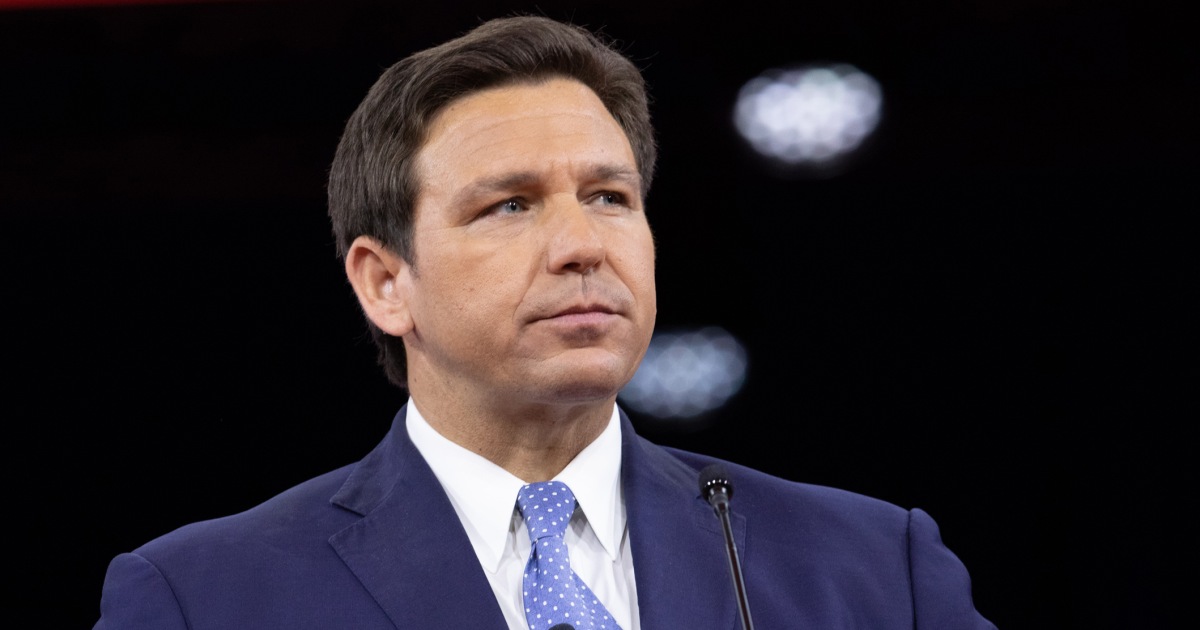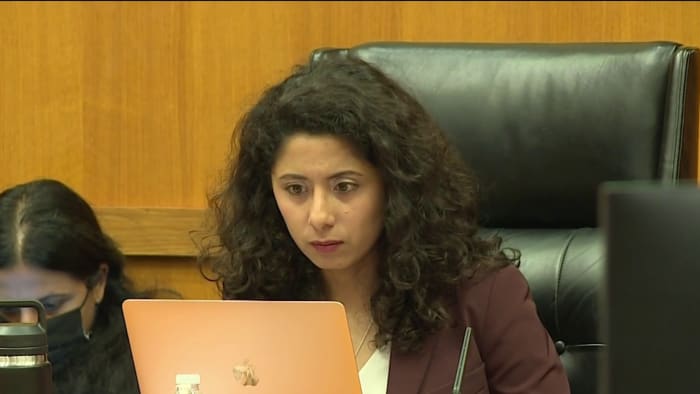Unaccompanied migrant minors aged 3 to 9, watch a television monitor inside a playpen at the U.S. Customs and Border Protection facility, the main detention center for unaccompanied children in the Rio Grande Valley, in Donna, Texas, on March 30, 2021.
AP
Tallahassee
Florida could soon have a new immigration bill in the books that has stoked fear among immigrant communities — but in practice, it is likely to serve more as a messaging tool than a policy crackdown.
That’s because there is not a lot that the state can do to address a federal immigration system, which Gov. Ron DeSantis and Republican lawmakers say is in “crisis” and “broken.”
But some of the few things the state can do are included in an immigration bill that the Republican-dominated Legislature approved on Wednesday, and sent to the desk of DeSantis, who is expected to sign the measure after asking for it.
Whether they will have an impact in Florida communities — many of them with immigrant-rich populations — remains to be seen. Here is what we know and don’t know about what the proposed law could mean for undocumented immigrants in Florida in the near future.
Will resettlement of undocumented immigrants be disrupted?
Much of the debate over the immigration proposal has focused on the transportation of undocumented immigrants into Florida, and whether the resettlement of unaccompanied minors, refugees and asylum seekers would be disrupted.
Local and state government entities would be barred from doing business with companies that transport “unauthorized aliens” into Florida, unless they are transporting them to facilitate the “detention, removal, or departure of the person from this state or the United States.”
Airlines, bus companies or even independent contractors would still be able to transport undocumented immigrants in the state on behalf of the federal government. But they could risk losing a state or local contract for doing so. So far, the state has not identified any state contracts that could be impacted, records obtained by POLITICO show.
It remains unclear how transportation companies would be able to identify passengers who are “unauthorized aliens.” But when companies contract with a state or local entity, they would be required to attest that they are “not willfully providing and will not willfully provide any service during the contract term.”
In addition to this bill, questions about the resettlement of undocumented immigrants in Florida have been raised in other proposals DeSantis and lawmakers are considering.
Florida Department of Transportation officials may soon be able to tap into a $12 million pot of money to contract with private companies to relocate “unlawful” migrants out of the state.

Florida shelters are likely to soon face new state restrictions on the number of unaccompanied minors they are able to take in on behalf of the federal government, under a proposed rule pushed by the state Department of Children and Families.
Faith leaders from across the state, including Miami Archbishop Thomas Wenski, have slammed the immigration proposals and worry that if approved, it will be harder for them to provide services to migrant children. The administrative rule under consideration is estimated to cost millions of dollars to shelters, many of them run by faith organizations.
Would unaccompanied minors be affected?
People who are considered to be “unlawfully” in the country under federal immigration law would be targeted in the proposal.
While GOP legislators say that definition does not include unaccompanied minors, immigration attorneys say it would because unaccompanied migrant children have “no lawful status” under federal immigration law.
People who have been granted Temporary Protected Status — such as Ukrainians fleeing their war-torn country — or who are protected under the Deferred Action for Childhood Arrivals program would not be impacted, according to lawmakers.
But concerns remain about people who are seeking asylum but have a pending application. Under federal immigration law, they fall under the category of “unauthorized alien” unless they receive a work authorization card, or are pending approval of their asylum status, immigration attorneys say.
Will Florida law enforcement have new responsibilities?
All Florida law enforcement officials that operate a county detention center would be required to participate in a federal immigration program, known as the 287(g), designed to identify and catch undocumented immigrants in county jails after they are arrested.
Currently, 48 Florida sheriffs are taking part in the program — a number that has soared under the DeSantis administration. The proposal would require county detention facilities that have yet to participate to enter into a cooperative agreement with U.S. Immigration and Customs Enforcement by January 1, 2023.
In practice, that means that within the next year, more county-level correctional officers could be traveling to Charleston, South Carolina, to be trained by ICE, at the expense of local jurisdictions.
Officers would be trained to identify, interrogate and turn over inmates for being in the country illegally — including some who may still be awaiting trial on criminal charges. They would be working under the supervision of ICE.
In order to be certified and allowed to perform immigration officers’ functions, local officers need to pass a test with a minimum score of 70{e421c4d081ed1e1efd2d9b9e397159b409f6f1af1639f2363bfecd2822ec732a}. ICE may require additional training.
What else would change?
Local governments would not be able to enact policies that would prohibit them from sharing information with state agencies about the immigration status of people in their custody.
This information-sharing requirement is the brainchild of DeSantis, who for months has complained about federal immigration officials not sharing enough information with the state.
When an undocumented immigrant enters the court system, courts and all detention facilities would also be required to collect the immigration status of every defendant in each criminal case.
This story was originally published March 9, 2022 5:27 PM.



